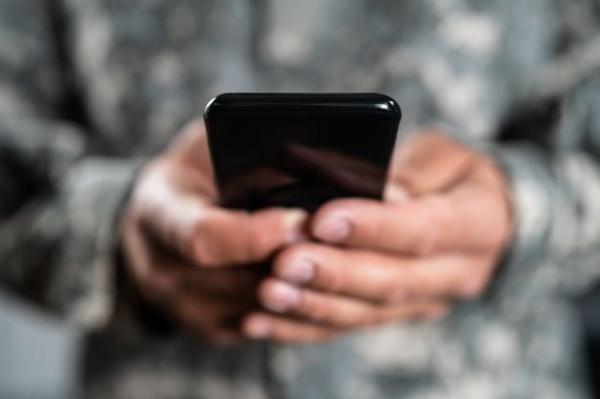Religion is often overlooked as a factor in the lives of the needy, but those who gather at a center in Virginia say it helps sustain them.
New York Times
By Jason DeParle
Nov. 24, 2024
Six mornings a week, a call for quiet stills a day center for homeless people in Northern Virginia, and those so inclined gather to thank God, read scripture and ponder its message for their tribulations.
They come from shelters and tents under bridges. They come hungry and sick. They seek meals, showers, clothes, jobs and connections to health care and housing — all of which the Lamb Center provides with no religious message or test.
Some also come to talk about God.
The center’s Bible study group recently pondered the kingdom of heaven: why does Jesus compare it to hidden treasure so precious that the man who finds it would sell everything to buy the surrounding field?
An elderly man scoffed: He would not sell his possessions unless heaven were guaranteed. A newcomer said that heaven already exists for those who believe. Then a woman who said God had sustained her through nearly a decade of homelessness shot up a hand.
“When you discover that God is real and taking care of you — that’s the hidden treasure,” said Kate Brady. “And it’s worth any price!”
Religion is often overlooked as a source of resilience among the poor, but the Lamb Center’s Bible study is in its 33rd year, and seats can be hard to find. Some people come to listen, some to vent, some to mull the parables through fogs of addiction or mental illness. They seek hope, but even when hope proves elusive the gatherings can provide a sense of community absent on the street.
In Bible study, no one is treated as an outcast or even a client. Everyone is a child of God.
“There’s no ‘us’ and ‘them’ around that table — just ‘us,’” said Tara Ruszkowski, the center’s director. “There’s such a richness to the faith lives of our guests. To have faith when so much is working against you is to have strong faith.”
Celebrating the faith of the poor makes some advocates for the needy uneasy. Proselytizers have used aid to coerce professions of belief. Rulers have promised heavenly rewards to quiet demand for earthly justice. Some calls for religion are covert attacks on government aid.
But the center’s Bible study is wholly voluntary and prized by those who join. Whatever benefits it lends the dispossessed, it also offers a reminder that people lumped together as “the homeless” are not an undifferentiated mass but individuals with inner lives and needs that go beyond survival to the search for meaning.
“When I tell people that I study the religious lives of unhoused people, they’re usually surprised to hear that unhoused people have religious lives,” said Susan Dunlap, a Presbyterian minister who taught at Duke Divinity School and volunteered as a shelter chaplain. “It humanizes unhoused people to think they’re theologically interpreting the world.”
Few of the Lamb Center’s clients have undergone a faith journey with as much energy and purpose as Ms. Brady, 67, who filled her journals with hymns, scripture, prayers, and professions of belief before the center helped her find housing.
Her suffering might have shaken another person’s faith, but Ms. Brady said hers grew and helped her persevere. “I didn’t understand why God allows bad things to happen,” she said. “But I could feel his hand taking care of me. That was just a lifeline to my soul.”
Gathering for Support
The Lamb Center started humbly three decades ago with space above a pawnshop and a motto addressed to body and spirit: “Strong Coffee and Mighty Prayers.”
Now it has a $2.9 million budget and a staff of 20. It offers free breakfast and lunch, dental care, showers, a wash-and-fold laundry, a subsidized jobs program and case managers with master’s degrees to help clients find housing and health care. Its 54-unit building for the chronically homeless, scheduled to break ground next year, will be the largest in Fairfax County. None of those services impose religion.
But the center treats Bible study as equally vital, if not more so. The sessions gather some of the poorest people in one of the country’s richest counties. But few of them express class anger or ask why God permits their suffering.
They are more likely to say they feel God’s immediate presence. After a hard rain, Rommel Cariño praised God for a dry tent: “The water, instead of flooding, flowed around! Even now, he’s here!”
Tim O’Connor, a longtime volunteer leader of the Bible study sessions, said hardship makes clients feel a special need for God. “Their faith is raw — it’s part of their survival,” he said.
Mindful of the shame many unhoused people feel, Mr. O’Connor emphasizes a relatable Jesus who suffered his own setbacks. A favorite lesson involves Jesus returning to Nazareth, where he was chased from his hometown. “I use that to tell people to keep going, stay strong,” he said.
The idea that faith can aid the afflicted finds support in a growing medical literature, summarized in an 1,100-page volume called the “Handbook of Religion and Health.”
“Religious practices and beliefs can be very powerful in helping people cope with mental illness and addiction,” said Dr. Harold Koenig, a Duke University psychiatrist and the work’s lead author.
Faith does not help everyone, he noted, and it is less a cure than a source of strength. Still, it works on multiple levels: it offers meaning and purpose, role models from scriptures and often a community. Moreover, no one needs a prescription. “It’s accessible to people in all circumstances,” Dr. Koenig said.
Few studies have focused on homelessness and faith, but one followed nearly 600 chronically homeless adults entering the services system. A year later, only about a quarter reported increased religiosity. But that group claimed better mental health, less substance abuse, and a higher quality of life.
The study could not separate cause and effect — whether faith promoted recovery or recovery promoted faith. Still “a lot of people experiencing homelessness draw on religion as a source of strength,” said Jack Tsai, a psychologist at the University of Texas Health Science Center at Houston, who coauthored the study.
The Lamb Center’s Bible studies reflect Christian teachings, but all are welcome and the sessions have drawn Muslims, Buddhists and atheists. A Muslim women’s group has sent kitchen volunteers.
“We’re not trying to convert anyone,” said Dave Larrabee, the pastoral director. “If anything, we’re happy to strengthen them in their faith.”
Part of the appeal is purely social. The gatherings give people accustomed to vigilance a chance to model a gentler self. “I love you,” Mr. Larrabee tells his guests, and some tell him the same.
Perhaps the welcoming atmosphere explains why the sessions often attract people with obvious mental illness, whom Mr. Larrabee calls “modern-day lepers” for the scorn they endure. “Even if you’re really out there, you can feel like you’re being heard,” he said.
While the sessions can connect people with services, sometimes they just showcase pain. One day a woman named Amna said she could not stop talking to herself on the street. “I go cuss myself out,” she said, and in response, people attack her. She was wearing a hospital bracelet.
“I’ve been outside in the cold, treated like crap!”
“We love you,” another guest said.
“You look at me on the bus like I don’t even exist!” Amna erupted, raging at an audience in her head. “My ankle is broken. I’ve gotten punched in the face!”
Her anguish silenced the room and she left.
‘I Needed to Believe’
Homelessness came suddenly to Ms. Brady at 53. She grew up middle class but abused, she said, beaten by a father who said he did not love her. She married and divorced, raised three children and enrolled in community college after her father offered to pay her bills, perhaps hoping to make amends. Then he died.
Even Ms. Brady struggles to explain how quickly she lost everything, from her apartment to her bearings. Perhaps the death, ending all chance of reconciliation, resurfaced the childhood trauma. “I had panic attacks, depression — just constant crying,” she said.
She lived in her car until it was repossessed, then moved into the woods. Her ID was stolen, making it hard to get aid. “I just had a psychotic break,” she said.
It is especially dangerous to be unhoused as a woman. She found a room in a Maryland boardinghouse in exchange for cleaning, but another resident broke her nose and left her in a wheelchair for months. She said she still grapples with the trauma of being raped in the Virginia woods.
But “strange as it sounds, my faith grew,” Ms. Brady said. “I needed to believe.”
She memorized scripture. She sang hymns in her tent. She found churches that welcomed the homeless. (Not all did.) She turned her journal into a running talk with God that spilled across hundreds of pages.
“I don’t understand why u let this happen,” she told God. “But I thank u for y’re Love, mercy, goodness, loving-kindness, helps, provisions.”
Though her faith had been lightly held, she heard the Holy Spirit offer reassurance, not as a thought in her head, she said, but a voice in her ear.
Ms. Brady prayed for help in overcoming her physical fears. “Trust in him,” she wrote of God. “No matter what.”
She also asked God to quiet the inner voice, left by her father, calling her unlovable. Her journal reflects what she took as God’s reassuring response.
“My name is not ‘stupid, dumb.’”
“I am loved by God, that’s who I am.”
While faith strengthened Ms. Brady, it did not cure her ailments, and she grew impatient. “I just didn’t understand why it was taking so long for God to work things out,” she said.
The Secular and the Spiritual
When Ms. Dunlap, the retired Duke theologian, held services at a Durham, N.C., shelter, critics warned that religion encouraged the homeless to accept injustice. Her book “Shelter Theology: The Religious Lives of People without Homes” argues the opposite, that faith lends the downtrodden the agency to push back.
“It empowers people to resist dehumanizing stereotypes and to step into the identity of someone beloved by God,” said Ms. Dunlap.
So it did for Ms. Brady, who spotted herself one day in a missing persons alert. Her family was looking for her. In subsequent calls, she agreed to accept help if they found a Christian social services group. An internet search led to the Lamb Center, and her sons brought her.
A routine set in, with nights at church shelters, days at the center, and Bible study as a morning anchor. Mostly, the center provided secular services. A caseworker helped her enroll in food stamps, Medicaid, and mental health services, replace her ID, and join the waiting list for supportive housing.
But when Ms. Brady asked, the caseworker prayed with her, too, which helped her trust him. “I was treated like a whole person — my body, soul and spirit,” she said.
Sicker than she knew, Ms. Brady was diagnosed with post-traumatic stress disorder and Lyme disease. She had two knees replaced and gall bladder surgery. Her needs moved her up the housing waiting list. In six months, she had a subsidized suburban apartment, with a caseworker if she needs help.
“I couldn’t believe it was for me!” she said.
After getting certified as a “peer recovery specialist” to help others with similar needs, Ms. Brady helped run a day center for the homeless. She left last year for medical reasons and now volunteers at the Lamb Center.
She was at the Bible study recently when it considered the prodigal son. The parallels to her story were inexact, but it did not take a theologian to guess why the story of a happy homecoming struck a chord.
Once lost, now found, Ms. Brady offered the closing prayer as the smell of meatloaf promised lunch for the faithful and faithless alike. “Heavenly Father, I’m just so thankful that you love us,” she said.










댓글 영역
획득법
① NFT 발행
작성한 게시물을 NFT로 발행하면 일주일 동안 사용할 수 있습니다. (최초 1회)
② NFT 구매
다른 이용자의 NFT를 구매하면 한 달 동안 사용할 수 있습니다. (구매 시마다 갱신)
사용법
디시콘에서지갑연결시 바로 사용 가능합니다.